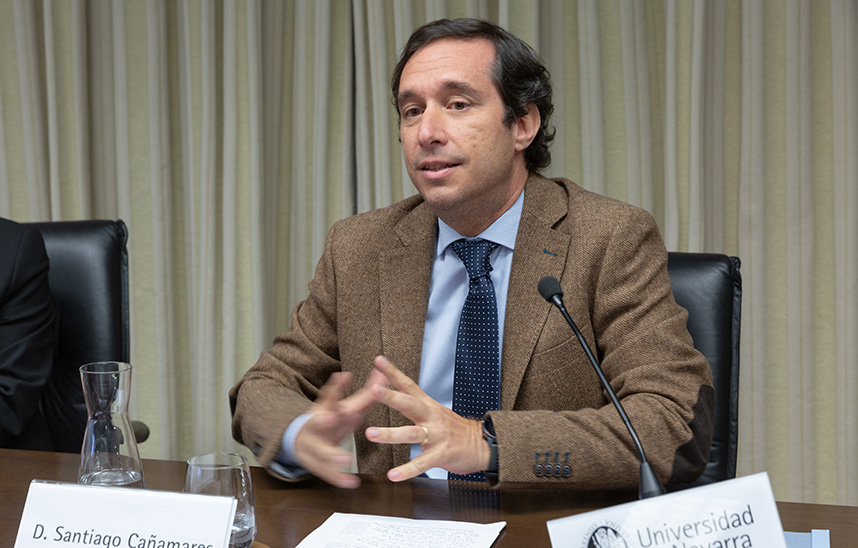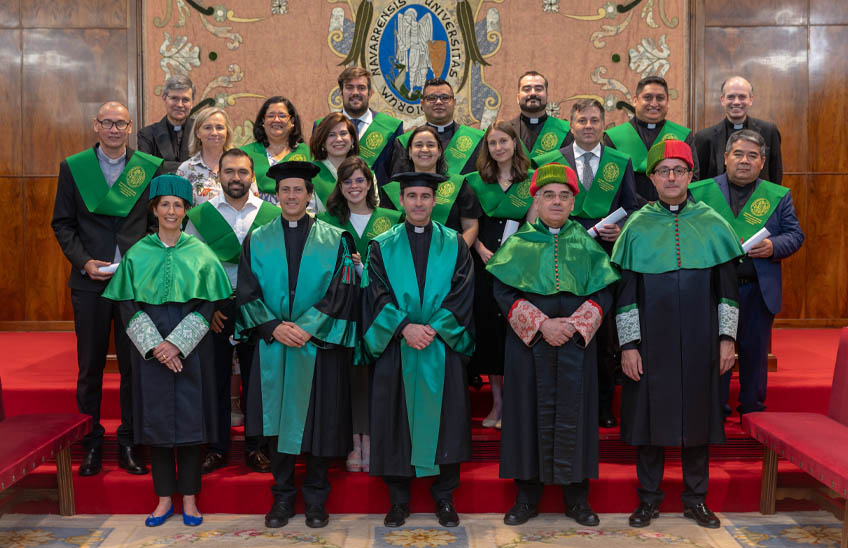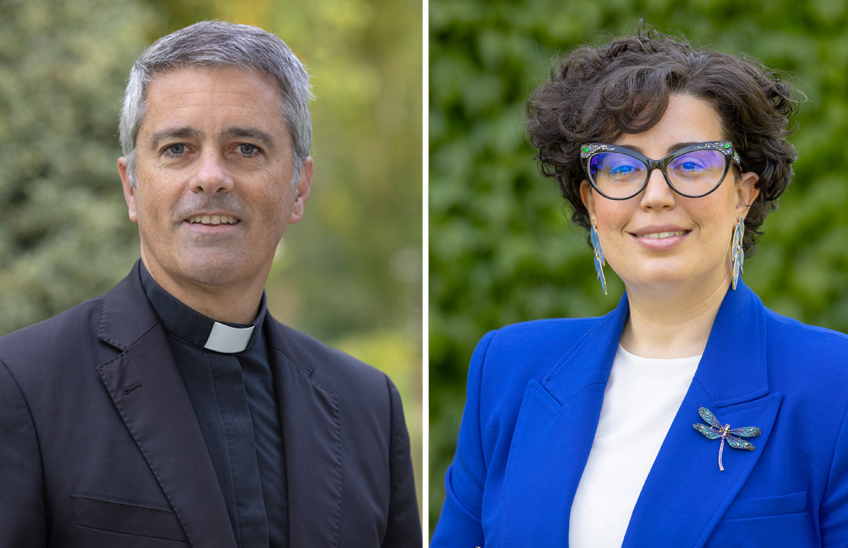Santiago Cañamares: "Religious freedom still has a long way to go in the European Union".
The Full Professor of State Ecclesiastical Law gave a lecture at the University lecture on law and religion.

FotoManuelCastells/Santiago Cañamares, Full Professor of State Ecclesiastical Law at the Complutense University of Madrid.
18 | 01 | 2023
Professor Santiago Cañamares, Full Professor of State Ecclesiastical Law at the Complutense University of Madrid, affirmed at the University that "religious freedom still has a long way to go and progress in the European Union". To this end, he considers essential the activity of the Advocates General and the mutual lending system of the Court of Justice of the European Union and the European Court of Human Rights.
His intervention was part of the lecture on law and religion that he offered at the School of Canon Law, on the occasion of the celebration of the feast of St. Raymond of Peñafort. In it he emphasized the importance of "canonists" knowing the juridical regulation of the European Union, especially for two reasons: "On the one hand, because the law of the European Union, in its eagerness to regulate all aspects of the single market, has inevitably been introduced in some matters that have an impact on the free exercise of religion and on the activity of religious confessions; and on the other hand, because the Court of Justice of the European Union has been pronouncing a series of decisions, somewhat inconsistent, that affect the right to religious freedom in the context of community law."
Cañamares structured his session in three parts: in the first, he spoke about religious freedom in the European Union; in the second, he analyzed the position of the European Union with regard to religion; and finally, in the third, he commented on some rulings of the Court of Justice.
The Court of Justice, core topic in the recognition of human rights
On the recognition of religious freedom, he recalled that we must not lose sight of the fact that the European Union was born with an economistic perspective and a approach , aimed at the creation of a single market and in which people were taken into account in their consideration as economic agents: "The EU has never paid too much attention to the topic of human rights, but that does not mean that it has been entirely oblivious to them".
In this regard, he stressed the important role of the Court of Justice in the recognition of fundamental rights and religious freedom and criticized that "its inconsistent jurisprudence has meant that on some occasions religious freedom has not been well understood as a general principle of community law".
Cañamares assures that he has the impression that the Court of Justice of the European Union is quite suspicious towards religious freedom, "something that has been a constant in many courts, both national and supranational". To explain this, he contextualized it with three different situations: religious equality in the employment, conscientious objection to medical treatment, and the economic cooperation of the state with religious denominations.


